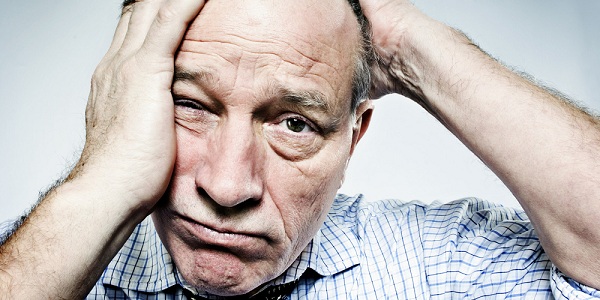If you think hormonal changes only happen in women, think again. The term menopause is normally associated with women, but hormonal changes in males happen as you age. The process which is known as andropause begins when men are in their 40s. The gradual process does not lead to infertility in men. There is, however, a cumulative testosterone hormone drop that leads to changes in the sexual organs and sexual drive.

How Does Hormone Change in Males?
Before puberty, testosterone level in males is generally low. At the onset of puberty, testosterone level begins to rise and keeps rising during sexual maturity. Testosterone controls the development of male sexual function, growth of muscle mass, body hair, as well as lowering of the voice.
Changes of Testosterone Level
As men advance in age, there is a significant change in their bodies' ability to produce DHEA, testosterone, as well as other androgens. This leads to a decline in their testosterone levels such that by the time they hit forty and every year thereafter. About 20 percent of men in their 60s and 50 percent of men aged 80 and above have a marked decline in testosterone levels. Testosterone is the most important hormone in men's sexual capacity, so decline in its level with age has a negative effect on a man's sexual activity.
Normal Range of Testosterone Level
On average, testosterone levels range between 2.7 and 17.3 ng/ml for adult males aged 20 – 49, and 2.1 to 7.6 ng/ml for adult men aged 50 and above. Levels below 2.5 ng/ml and 2.0 ng/ml respectively are termed as low. But besides age, low testosterone levels can be induced by other factors such as obesity, diabetes, serious infections, renal and liver diseases, other hormonal disorders, and side effects from some medicines.
Changes of Testosterone/Estrogen Balance
Testosterone/estrogen (T/E) balance is critical in male hormonal health. For healthy male, the ratio of T:E will be high. Although testosterone is the male hormone, small amounts of estrogen are produced in men from the testosterone. With advancing age and accompanying hormonal changes in males, the T:E ratio drops. Aromatase, an enzyme, mostly prevalent in fat cells, converts testosterone to estrogen. As they age, there is an increase in the activity of aromatase, so most men lose muscle and gain fat.
What Would Happen When Hormone Changes in Male?
1. Low Libido
Because testosterone hormone is responsible for maintaining sexual activity, men undergoing andropause have a declining libido. One study carried out in 2000 found that 91 percent of its subjects had low libido.
2. Depression
A big number of andropausal men visit psychiatrists before having their testosterone checked. Because testosterone plays a part in mood regulation, its decrease in men undergoing andropause can lead to depression. A 1985 study about depressed men found that the lower the testosterone level, the more severe the depression.
3. Low Energy
Testosterone is a key player in men's energy levels. For this reason, hormonal changes in males during andropause, including lowered testosterone levels, lead to a drop in men's energy levels. Signs of low energy include falling asleep soon after eating a meal.
4. Insomnia
If you think that low energy would always lead to lots of sleep, this is not necessarily the case. Low testosterone levels can cause both low energy and insomnia in men in andropause. One of the functions of testosterone in men is sleep regulation. Therefore, as men undergo andropause and their testosterone levels fall, they may have disturbed sleep and insomnia.
5. Osteoporosis
Since testosterone plays a role in maintaining your bone density, andropause can lead to more fragile bones, increasing your risk of getting osteoporosis. Many studies have found that there is a direct link between low testosterone and osteoporosis.
6. Abdominal Fat Accumulation
Studies suggest that low testosterone and abdominal fat work together. When testosterone level is high, there is low accumulation of abdominal fat. However, due to hormonal changes in males during andropause, more fat accumulates in your abdomen. The abdominal fat provides space for the production of more aromatase enzyme which converts testosterone to estrogen. The change in T/E balance lowers testosterone level even further, causing even more abdominal fat to accumulate. Abdominal fat is therefore both a result and a cause of low testosterone.
7. More Symptoms
Besides the above signs of hormonal change in males, other symptoms include:
- Enlarged breasts
- Lower self-confidence and motivation
- Poor memory and concentration
- Reduction in spontaneous erections
- Nervousness and irritability
- Tiredness and reduced endurance
- Reduction in muscle size and strength
- Low sperm count
- Reduction in red blood cells
How to Deal with Hormonal Changes in Males
Decline in testosterone level is inevitable with advancing age. However, if you experience a serious disruption of your life, consult your doctor for advice and recommendation for treatment. Upon visiting your doctor, he will run a blood test for your testosterone levels.
Lifestyle Changes
As your doctor will tell you, management of the symptoms of low testosterone can largely be accomplished by following healthier lifestyle practices including the following:
- Regular exercise
- A healthy diet
- Stress management
- Sufficient sleep
These healthy lifestyle changes are beneficial to all men and those who adopt them report overall improvement of their health.
Medications and Therapy
In addition to these lifestyle changes, if you have depression, your doctor may prescribe antidepressants and therapy.
For those seeking medical remedies following hormonal changes in males, a doctor may suggest hormone replacement therapy (HRT). However, HRT is a controversial subject. It may cause growth of cancerous cells if you have prostate cancer.
